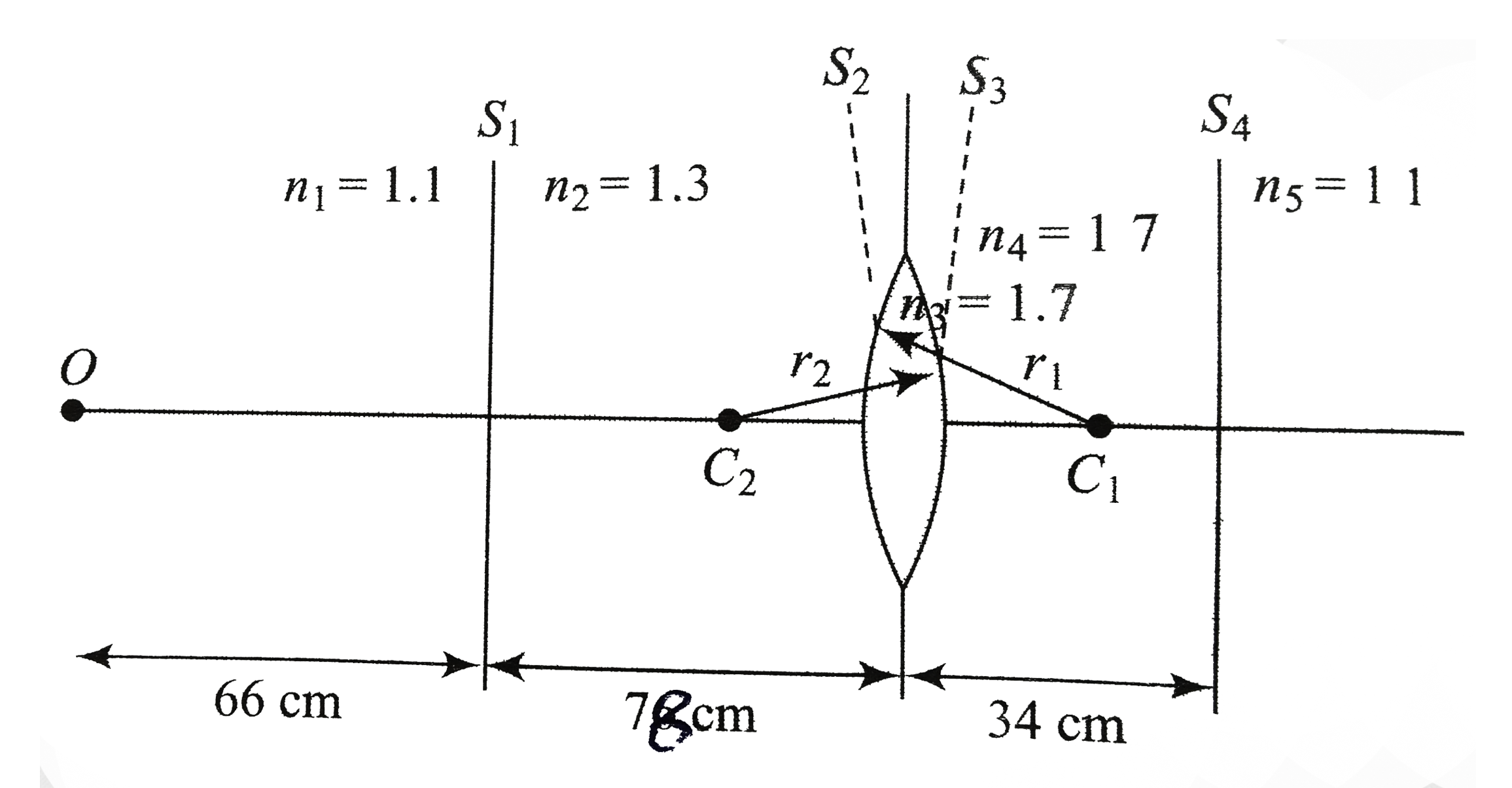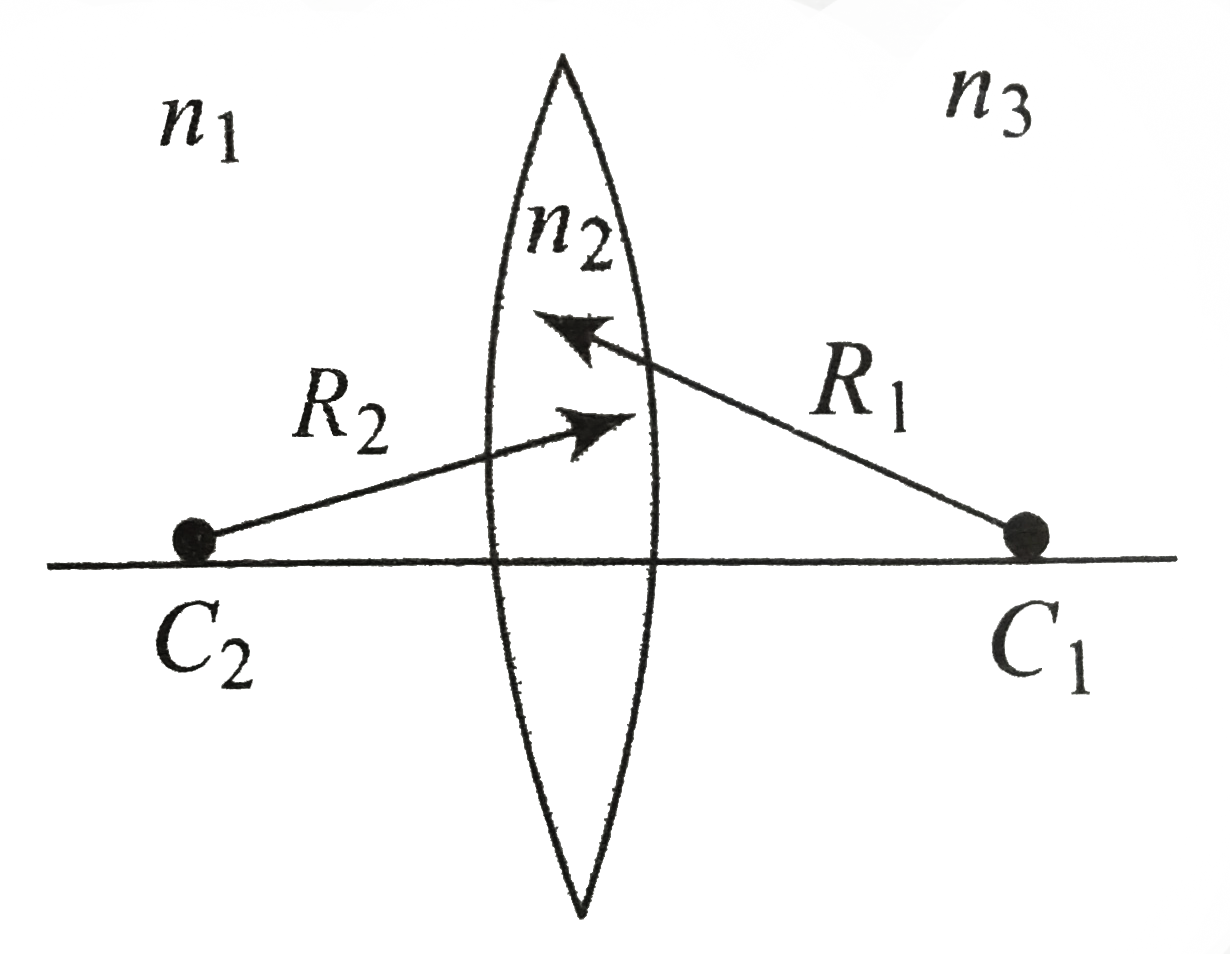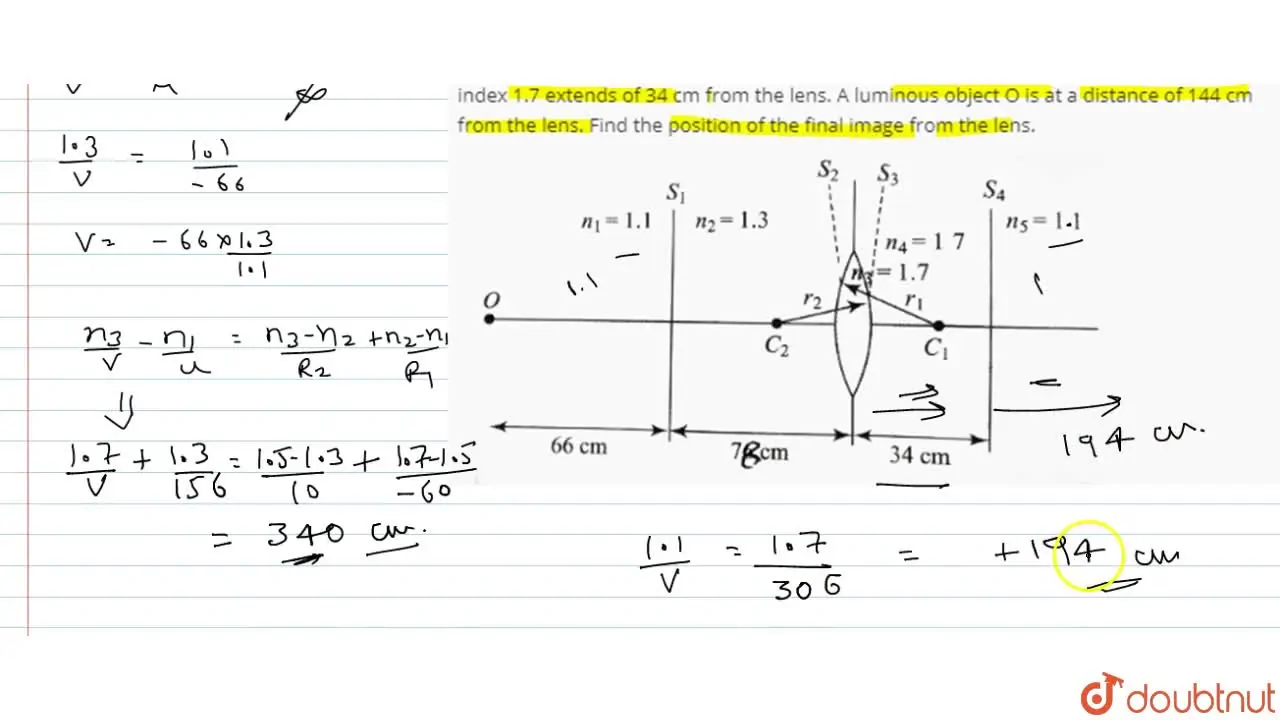A biconvex lens separates two media of refractive indices 1.3 and 1.7. the refractive index of the lens is 1.5 and the radii of curvature of the two sides of the lens are r1=10cm and r2=60cm .
The medium of refractive index 1.3 extends to 78 cm from the lens and that of refractive index 1.7 extends of 34 cm from the lens. A luminous object O is at a distance of 144 cm from the lens. Find the position of the final image from the lens.

Once again we have to apply single surface refraction equation to the four surfaces S1,S2,S3 and S4 . But we have learned the general thin lens equation
n3v−n1u
n2−n1R1+n3−n2R2
which will take account of the two refractions at S2 and S3 . For refraction at surface S1 :
1.3v−1.1(−66)=(1.3−1.1)∞=0⇒v=−78cm
Image lies to the left of the surface S1. This acts as an object for the lens.
For refraction throught the lens: We apply the general thin lens equation.
Object distance for lens
u′=−(78+78)cm
1.7v′−1.3(−156)=1.5−1.3+10+1.7−1.5(−60)
v′=340cm
For refraction at surface S4: Object distance for refraction S4 is 340−34=306cm
1.1v''−1.7(+306)=0
⇒v''=1.1×3.61.7=198cm to the right of S4

Related Playlists
- BOOK - CENGAGE PHYSICSCHAPTER - GEOMETRICAL OPTICSEXERCISE - Solved Examples15videos
GEOMETRICAL OPTICS
- BOOK - CENGAGE PHYSICSCHAPTER - GEOMETRICAL OPTICSEXERCISE - Exercise1.114videos
GEOMETRICAL OPTICS
- BOOK - CENGAGE PHYSICSCHAPTER - FRICTIONEXERCISE - QUESTION BANK1videos
FRICTION
- BOOK - CENGAGE PHYSICSCHAPTER - GRAVITATIONEXERCISE - Question Bank39videos
GRAVITATION
Similar Questions
If the radii of curvature of the two surfaces of a concave lens are 10 cm and 20 cm respectively and the refractive index is 1.5. What is its focal length ?
View SolutionA double convex lens made of glass of refractive index 1.56 has both radii of curvature of magnitude 20cm. If an object is placed at a distance of 10cm from this lens, find the position of image formed.
View SolutionThe radii of curvature of the faces of a double convex lens
are 10 cm and 20. The refractive index of the glass is 1.5.
What is the power of this lens (in units of dioptre)?View SolutionThe radii of curvature of a double convex lens are 30 cm and 60 cm and its refractive index is 1.5. calculate its focal length.
View SolutionThe radii of curvature of a lens are +20cm and +30cm .The material of the lens has a refractive index 1.6 .Then focal length of the lens (in cm) if it is placed in water of refractive index μ=(4)/(3) is
View SolutionA concave lens of refractive index 1.5 is immersed in a medium of refractive index 1.65. What is the nature of the lens ?
View SolutionA concave lens of refractive index 1.5 is immersed in a medium of refractive index 1.65. What is the nature of the lens ?
View SolutionThe radii of curvature of the two surfaces of a lens are 20cm and 30cm and the refractive index of the material of the lens is 1.5. If the lens is concave− convex, then the focal length of lens is
View SolutionA concavo-convex lens is made of glass of refractive index 1.5. The radii of curvature of its two surfaces are 30cm and 50cm. Its focal length when placed in a liquid of refractive index 1.4 is
View SolutionThe radii of curvatures of a double convex lens are 15 cm and 30 cm, and its refractive index is 1.5. Then its focal length is -
View Solution


